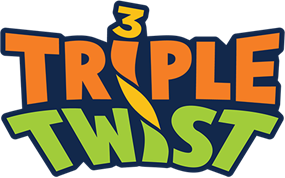Arizona Lottery says crooks claiming to be the Glendale $414 Million Mega Millions jackpot winners are falsely promising millions in messages
PHOENIX (July 30, 2020) – Just weeks after a Glendale couple won the $414 million Mega Millions Jackpot in June, reports of several scam emails have begun rolling into Arizona Lottery Headquarters from across the country.
From California to Georgia, people are calling the Arizona Lottery about an email, purporting to be from the couple who won, offering to privately “donate” $2 million to the would-be victims, so they can, “generously help us (the scammers) extend hands of giving to the less privileged, orphans and charity organizations within your locality.” The email even includes a link to a genuine news story about this lucky couple to give it credibility.
- Do not be fooled. The Arizona Lottery never reaches out to players asking for their personal information. We don’t know if you’ve even purchased a ticket until you claim your prize. This is a total and complete scam.
- Do not click the link. Scammers can use these links to steal your personal information.
- Do not respond in any way. Responding lets the scammers know that your contact information is good and they will only try harder to steal your information and your money.
If you respond, the scammers will try to trick you into sending them money or personal information by claiming that they want to share their lottery prize with you. They often target older people and have been known to wipe out victims’ retirement savings.
The scammers do this by trying to get you to wire money for “taxes” or “fees.” They may also try to get you to give them your bank account number, which they will then clean out. Another trick is to send you a bogus “check” and ask you to send money back to cover expenses. It is only after you have sent your own money that you discover the check you received is counterfeit.
Here are some tips that can prevent you from being scammed:
- Be suspicious if an e-mail contains misspellings or poor grammar
- If you are told that you need to keep this confidential, be suspicious.
- Never give out personal information or send money unless you verify the company’s or solicitor’s legitimacy.
- If they offer to wire the money directly into your bank account, do not give them your bank account information.
- If you think someone is trying to scam you, do not communicate with them in any way. If you do, your name and contact information could end up on a list that’s shared with other scammers.
- When in doubt, feel free to call Arizona Lottery headquarters and check with us yourself.
The Federal Trade Commission has more information on fake lottery and other scams at http://www.consumer.ftc.gov/articles/0086-international-lottery-scams. To file a complaint or get free information call toll-free, 1-877-FTC-HELP (1-877-382-4357). If you have been the victim of a scam, contact your local police or sheriff’s office or state police.










